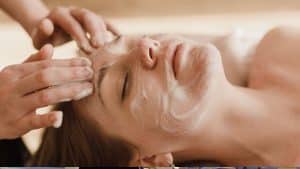It’s not hard to make a list of self-care goals. Drink more water. Stretch. Unplug before bed. What’s hard is dragging yourself into week three of February when your planner starts gathering dust and your yoga mat becomes more symbolic than practical. Sticking to wellness goals doesn’t just require discipline—it requires a little self-forgiveness, a sharper memory for your why, and a sturdier relationship with the present. Let’s not pretend this is about becoming the best version of yourself. This is about remembering you’re already someone worth taking care of.
Forget Motivation—You Need Architecture
Motivation burns fast. What endures is structure. If you’re relying on bursts of inspiration to keep your wellness goals alive, you’ll likely run out of steam the moment life starts lobbing curveballs again. Instead, you need rituals that anchor you—non-negotiable, everyday moments that require less decision-making and more showing up. Try habit-stacking. Place your vitamins next to your coffee mug. Set your journal on your pillow so you can’t fall asleep without moving it. Small, clever triggers beat big plans every time.
Make Further Education a Priority
Holding onto your career goals requires a long memory and a short fuse for excuses—especially when the world around you keeps shifting the goalposts. You don’t need a perfect five-year plan; you need a sense of direction and enough courage to redraw the map when necessary. For many, that might mean going back to school for an online degree, a path that makes it possible to keep learning while still holding down a job and a life. If you’re called to earn a healthcare degree so you can help shape the well-being of individuals and families, you might find this helpful as a way to move forward with purpose and flexibility.
Self-Care Doesn’t Look the Same Every Season
There’s a version of self-care for who you are today, and if you’re still trying to force routines that worked when you were 25, or childless, or not working three jobs, you’re setting yourself up to fail. Wellness should be adaptable, not rigid. Some seasons demand high-output discipline. Others are about hanging on. Listen to the cues: a dry spell in your creative work might call for more play, not more pressure. A fatigued body might not want your 5 a.m. run; it might need an evening walk. Evolve with your life.
Tiny Wins Are Your Real Progress Markers
Stop thinking your progress hinges on full gym weeks or meditation marathons. The truest measure of self-care is what you do when nobody’s watching and there’s nothing flashy about it. Drinking a glass of water before your coffee. Canceling a plan when your body says no. Leaving your phone in the other room while you cook. These small acts compound. Celebrate them. They’re proof that you’re paying attention to yourself in a world constantly asking you to look elsewhere.
Make Your Environment Do Half the Work
Your willpower isn’t lazy—it’s just exhausted. And often, your surroundings aren’t helping. Design a space that nudges you toward the version of yourself you’re trying to support. That might mean putting a book by your nightstand instead of your phone. Keeping a foam roller in the living room so stretching doesn’t become a thing you “go do,” but a thing you simply do. You can even delete apps or use grayscale settings to make your devices less appetizing. Aligning your environment with your intentions gives you fewer chances to bail on yourself.
Community Keeps You Honest (and Buoyant)
It’s easier to bail on yourself than on a friend. That’s not weakness—it’s psychology. Sometimes, the only way to keep a self-care goal alive is to loop in someone else. You don’t need a coach. You need someone who’ll text you “walk today?” or who’ll remind you to rest when you’re overdoing it. Wellness doesn’t thrive in isolation. It grows in the quiet accountability of shared lives. Choose a person who sees your effort, not your outcome, and show up for each other.
Let’s be honest: the wellness world is obsessed with optimization. There’s a loud and shiny pressure to “hack” your way to serenity. But caring for yourself isn’t a spreadsheet activity—it’s a relationship.
Embark on a transformative journey with Faith-N-Fit and discover faith-based strategies to achieve your fitness goals, from weight loss to muscle building, with expert guidance and actionable tips!
Read Next…
- 5 Easy High-Protein Snacks for Muscle Recovery on Busy Days
- Cold Water Face Therapy: Benefits for Skin, Stress & Recovery
- Is Deadlifting Safe for Lower Back Pain? What Experts Say
- Collagen vs Retinol: What’s Better for Youthful Skin?
- Is the Hack Squat Better Than Traditional Squats for Leg Growth?
Subscribe now and get a 14-day free trial workout app for iPhone users.





